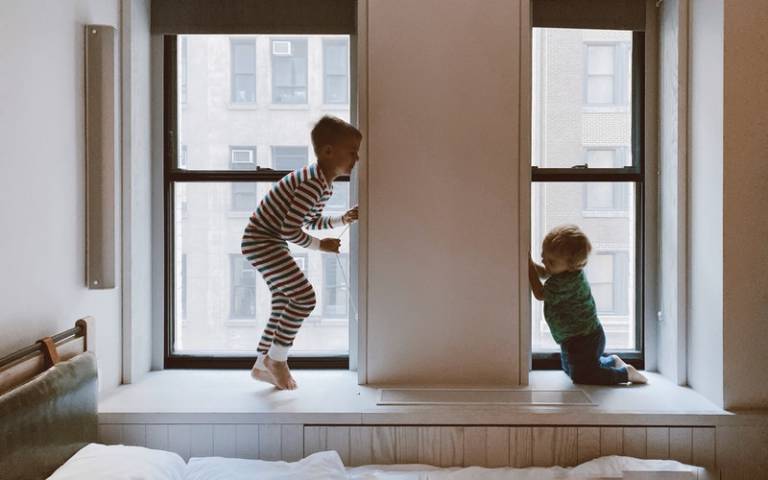How has the pandemic affected how children play?
31 March 2021
Children and their parents are being invited to share their experiences of play during the COVID-19 pandemic as part of a project led by UCL Institute of Education (IOE).

School closures and social distancing have had a huge impact on young people’s opportunities to socialise over the past year and a new research project is exploring how the COVID-19 pandemic has featured in children’s play and related stories, language and humour.
The research team, which also includes academics from the School of Education at the University of Sheffield, and The Bartlett Centre for Advanced Spatial Analysis (CASA) at UCL, are looking for young people and adults to share examples of play through an online survey. The examples can include descriptions, photos, drawings, sound recordings or video clips.
These submissions will help create a play observatory, documenting children and young people’s experiences during the pandemic and informing future generations’ understandings of young people’s lives.
By doing this, the team can examine how children’s current play compares to the past and better understand the significance of play and expressive culture for wellbeing during times of crisis and change.
As well as creating a multi-media archive, the project team will develop an online exhibition with the V&A Museum of Childhood, showcasing children’s experiences of play in the pandemic through photographs, drawings, sound and video. They will also design Play Wellbeing Toolkits with the play services team at Great Ormond Street Hospital, offering advice for supporting play and understanding its importance, particularly during uncertain and stressful periods.
Project lead Professor John Potter (IOE) said:
“We would love to hear from children, their parents and carers about how they have been playing during lockdown; adaptations to old games, new ones they’ve made up, by themselves or with families and friends, with others in bubbles at school, outside or inside, onscreen on Zoom or making Tik Tok videos, building in Minecraft or Roblox, anything and everything. We have a hunch that play has been as important as ever in children’s lives and will be even more important as they are able to meet up with each other again. There is widespread concern about the need to catch up but we would like to see this rebalanced to include children’s need to play for their health and wellbeing.
“We would encourage anyone with stories to tell about play during the past year to visit us at play-observatory.com and sign up for our survey. And if you want to talk more with us about this, let us know.”
Co-investgator Dr Yinka Olusoga (University of Sheffield) said:
“Taking part in the survey is also about playing a part in recording history as it happens. Our archive, which is inspired by the one created by Iona and Peter Opie from the 1950s on, will help people in the future understand what play was like for children and young people in the current unique period of history.”
Email: info@play-observatory.com
The 15-month project is funded by the Economic and Social Research Council (ESRC) as part of the UK Research and Innovation’s rapid response to COVID-19.
Links
- Play Observatory
- View Professor John Potter’s research profile
- View Dr Yinka Olusoga's research profile
- UCL Knowledge Lab
- Department of Culture, Communication and Media
- School of Education at the University of Sheffield
- CASA
 Close
Close

